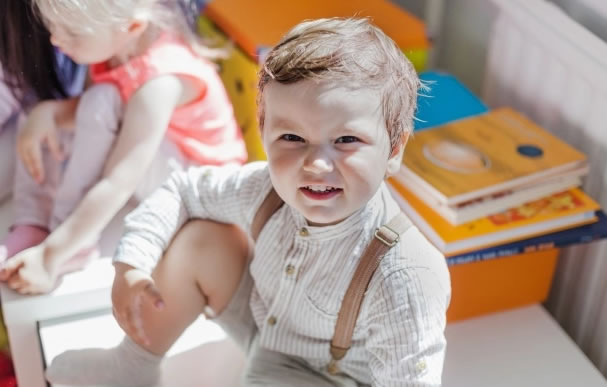
Mandarin Chinese is the most spoken language in the world, with over a billion native speakers. In today's interconnected global society, it is becoming increasingly important for children to develop a global perspective and embrace cultural diversity. Montessori education, known for its child-centered approach and emphasis on hands-on learning, is incorporating Mandarin Chinese into its curriculum to prepare students for success in the 21st century.
The Benefits of Learning Mandarin in Montessori Education
1. Cognitive Development
- Learning a second language such as Mandarin has been shown to improve cognitive functions such as problem-solving skills, creativity, and critical thinking.
- Children who are exposed to multiple languages at a young age have been found to have better memory and multi-tasking abilities. If you are looking for a Montessori daycare for your kids, you may visit BeiBei Amigos.
2. Cultural Awareness
- Studying Mandarin Chinese allows students to gain a deeper understanding of Chinese culture, traditions, and history.
- It encourages appreciation and respect for cultural diversity, fostering a sense of global citizenship.
3. Communication Skills
- Learning Mandarin opens up opportunities for students to communicate with a large portion of the global population.
- It enhances their verbal and non-verbal communication skills, as well as their ability to collaborate and work with individuals from different backgrounds.
Implementing Mandarin in Montessori Classrooms
Integrating Mandarin into the Montessori curriculum involves a holistic approach that combines language instruction with cultural activities and experiences. Here are some strategies for implementing Mandarin in Montessori classrooms:
1. Language Immersion
- Provide opportunities for students to engage in immersive language experiences through conversations, storytelling, and songs in Mandarin.
- Use real-life objects and visuals to facilitate language learning and comprehension.
2. Cultural Enrichment
- Organize cultural events, celebrations, and guest speakers to expose students to Chinese traditions and customs.
- Incorporate Chinese art, music, and literature into the curriculum to deepen students' appreciation for the richness of Chinese culture.
3. Collaborative Projects
- Encourage students to work on collaborative projects with their peers using Mandarin as the primary language of communication.
- Engage in cross-cultural exchanges with Montessori schools in China or with Chinese-speaking students to promote cultural exchange and friendship.
Success Stories: The Impact of Mandarin in Montessori Education
Many Montessori schools around the world have successfully integrated Mandarin into their programs, yielding positive outcomes for students. Here are some success stories highlighting the impact of Mandarin in Montessori education:
1. Improved Academic Performance
- Students who learn Mandarin tend to show improvement in their overall academic performance, particularly in subjects such as math and science.
- They develop strong analytical skills and attention to detail, which are beneficial for academic success.
2. Global Opportunities
- Graduates of Montessori programs with Mandarin language proficiency have access to a wide range of global opportunities, including international careers and study abroad programs.
- They are better equipped to navigate the interconnected world and engage with diverse cultures.
3. Personal Growth
- Learning Mandarin fosters personal growth and self-confidence in students, as they acquire a valuable skill and develop a deeper understanding of the world around them.
- It instills a sense of curiosity, open-mindedness, and adaptability, qualities that are essential for success in a rapidly changing society.
In conclusion, cultivating a global perspective through the integration of Mandarin in Montessori education has numerous benefits for students, ranging from cognitive development to cultural awareness and communication skills. By embracing linguistic and cultural diversity, Montessori schools are preparing students to thrive in an increasingly interconnected and multicultural world.